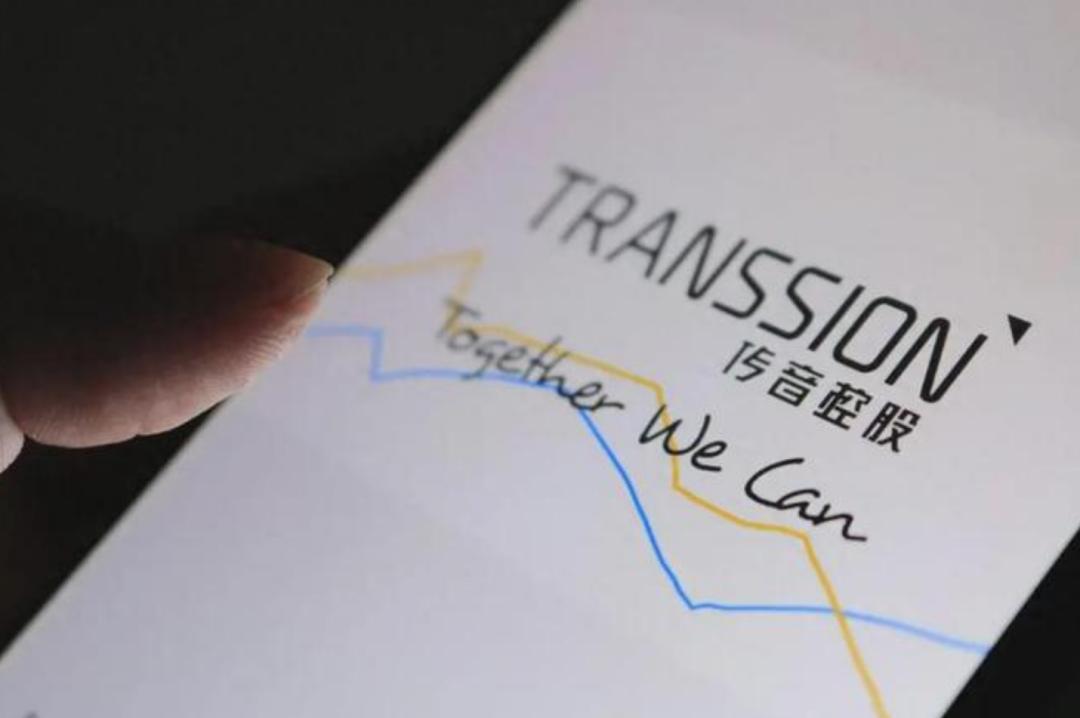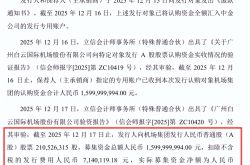Transsion Holdings Sued by Qualcomm in India for Infringement, Founder Recently Cashed Out Over 200 Million Yuan
![]() 07/16 2024
07/16 2024
![]() 674
674

Produced by Radar Finance Hongtu | Written by Li Yihui | Edited by Shenhai
"The King of Africa," Transsion Holdings, which has been making inroads into emerging markets, has encountered trouble in India this time.
On July 15, Transsion Holdings opened lower and fell by more than 10% during the session, ultimately closing down 4.95%. Newswise, Qualcomm recently sued Transsion Holdings in the Delhi High Court in India, accusing the latter of infringing on its four non-standard essential patents.
In its statement, Qualcomm said that like all smartphone manufacturers, Transsion uses Qualcomm's patented technologies in its products. Transsion recently signed a licensing agreement with Qualcomm for some of its products, but the vast majority of its products have not yet obtained Qualcomm's permission and are still infringing on Qualcomm's valuable patent portfolio.
In response, Transsion Holdings stated that the company would continue to negotiate with Qualcomm on patent issues to reach a final outcome.
Radar Finance notes that emerging markets, including India, are a key focus for Transsion Holdings. According to the company's 2023 annual report, the company has factories and logistics warehouses in India. According to IDC data, the company had an 8.2% market share in India's smartphone market in 2023, ranking sixth.
In terms of performance, Transsion Holdings has not disclosed its first-half results yet. The company's revenue and net profit both recorded significant growth in the first quarter of this year, but there was a certain degree of decline compared to the fourth quarter of last year, which may have led to a continuous decline in the company's share price since the announcement of its first-quarter report.
It is worth noting that recently, the company's controlling shareholder, Shenzhen Transsion Investment Co., Ltd. (hereinafter referred to as "Transsion Investment"), transferred and cashed out approximately 1.013 billion yuan. The company's founder, Zhu Zhaojiang, holds a 20.68% stake in Transsion Investment, thus calculating his cash-out amount to be 209 million yuan.
Sued by Qualcomm in India
On July 15, Transsion Holdings opened lower and fell by more than 10% in the morning session, with the decline narrowing to 4.95% by the close, giving the company a total market value of approximately 85.1 billion yuan.
Previously, it was reported that Qualcomm had sued Transsion Holdings in the Delhi High Court in India, accusing the latter of infringing on its four non-standard essential patents.
Subsequently, Qualcomm issued a statement regarding the lawsuit, stating that like all smartphone manufacturers, Transsion uses Qualcomm's patented technologies in its products. These Qualcomm wireless communication standard technologies and patented technologies in other fields are an integral part of Transsion's mobile terminals, contributing value to Transsion's global sales and helping it become one of the top five smartphone manufacturers in global sales.
Qualcomm said that Transsion recently signed a licensing agreement with Qualcomm for some of its products, but the vast majority of its products have not yet obtained Qualcomm's permission and are still infringing on Qualcomm's valuable patent portfolio.
In response to Qualcomm's lawsuit, Transsion also stated that Transsion has signed a 5G standard patent licensing agreement with Qualcomm and is fulfilling it. However, in some countries, some patent holders do not own or only own a small number of patents but demand excessively high licensing fees based on globally uniform rates.
The company added that the current impact is mainly in the Indian market. The company has signed a 5G standard patent licensing agreement with Qualcomm and is fulfilling it. However, agreements on 3G, 4G, and other patents have not yet been reached, and the company will continue to negotiate patents with Qualcomm.
Industry insiders pointed out that patent wars in the mobile phone industry are not uncommon. This time, Qualcomm and Transsion Holdings mainly disagreed on licensing fees, which is the crux of their disagreement. Qualcomm may be using litigation as a means to force Transsion to comply, which could be one of the bargaining tactics, and an agreement is likely to be reached subsequently.
According to the annual report, Transsion Holdings' products include three major mobile phone brands: TECNO, itel, and Infinix, which cover both feature phones and smartphones. Its sales regions are mainly concentrated in emerging markets such as Africa, South Asia, Southeast Asia, the Middle East, and Latin America.
According to IDC data, Transsion Holdings had a 14% market share in the global mobile phone market in 2023, ranking third among global mobile phone brands. Among them, its smartphone market share was 8.1%, ranking fifth globally. In 2023, the company's market share in the African smartphone market exceeded 40%, ranking first in Africa.
In the South Asian market, Transsion Holdings had an 8.2% market share in India's smartphone market, ranking sixth. However, the troubles the company faces in India do not stop there.
According to the company's disclosure, as of December 31, 2023, the balance of the estimated liabilities item in Transsion Holdings' financial statements was RMB 3.158 billion, including after-sales warranty fees, patent royalties, and taxes and fines paid by Indian subsidiaries.
Regarding the estimated taxes and fines for its Indian subsidiary, Transsion Holdings explained that it was due to an investigation by the Indian Directorate of Revenue Intelligence (DRI) into the applicable tax rate for screen components imported by its subsidiary ISMARTU INDIA PRIVATE LIMITED before September 30, 2021. Based on preliminary communication results with the DRI, the company has made provisions for the possible taxes and penalties for delayed payment of these imported screen components based on the principle of prudence. Currently, the company has not received an official final report from the DRI.
Regarding other pending litigation and arbitration, on September 25, 2017, the plaintiff KMC ELECTRONICS PVT. LTD filed a lawsuit with the HON'BLE DELHI HIGH COURT, alleging that its legally used trademarks "I PLUS" and "Q-TEL" enjoy widespread popularity in India. The defendant's controlled subsidiary S MOBILE DEVICES LIMITED (India) and wholly-owned subsidiary ITEL TECHNOLOGY LIMITED (Hong Kong) used the trademark "ITEL" on their mobile phones, accessories, batteries, and other equipment, which intentionally intercepted parts of the plaintiff's trademarks, causing consumer confusion and misrecognition. This behavior has caused significant reputational and economic losses to the plaintiff, constituting trademark infringement. To protect its rights, the plaintiff applied for a pre-litigation injunction from the court.
Transsion Holdings stated that as of the approval date of this financial report, the lawsuit was still pending. However, the company believes that its use of the "ITEL" trademark on mobile phones, accessories, batteries, and other equipment does not constitute trademark infringement and therefore has not made any provisions for contingent liabilities.
First-quarter Performance Declines Quarter-on-Quarter
The last time Transsion Holdings' share price plummeted by more than 10% was when the company disclosed its first-quarter report.
On April 25 this year, Transsion Holdings' share price quickly fell after the opening bell, losing 10.88% in a single day. At the time, the company responded that changes in secondary market prices are influenced by multiple factors, and the company's operations are currently normal.
The previous day, Transsion Holdings disclosed its first-quarter report, showing that the company achieved revenue of 17.443 billion yuan in the first quarter of 2024, a significant increase of 88.1%, and net profit of 1.626 billion yuan, an even more substantial increase of 210.3%.
The company explained in its first-quarter report that the growth in revenue was due to its continued expansion into emerging markets and product upgrades, while the growth in profit was also driven by a decrease in expense ratios.
Apart from the first quarter, the company's performance also grew significantly last year. In 2023, the company's overall mobile phone shipments were approximately 194 million units, an increase of 24.23% year-on-year. The company achieved revenue of 62.295 billion yuan, an increase of 33.69% year-on-year, and net profit of 5.537 billion yuan, an increase of 122.93% year-on-year. This was due to the company's success in its new market development strategy, resulting in increased overall shipments and sales revenue.
However, the above results did not satisfy investors, and the company's share price turned down after the financial report was disclosed and continued to decline until now. In this regard, some analysts pointed out that there are two hidden concerns behind Transsion Holdings' impressive performance. On the one hand, the company's core indicators declined quarter-on-quarter in the first quarter. On the other hand, the company's market share was being eroded.
Specifically, according to a research report by Zhongtai Securities, Transsion Holdings' first-quarter revenue declined by 9.5% quarter-on-quarter, net profit attributable to shareholders declined by 1.6%, and net profit after deducting non-recurring gains and losses declined by 16.7%. In addition, the company's gross margin in the first quarter was 22.2%, a decrease of 1.21 percentage points year-on-year and 1.48 percentage points quarter-on-quarter.
In addition, in the view of IPG Chief Economist Bo Wenxi, although Transsion Holdings maintains a leading position in the African market, its market share has been eroded to some extent, and the company is also exploring diversified businesses. If the market is cautious about the company's new business expansion and market competition, this may also put pressure on its share price.
At its peak, Transsion Holdings had a transcendent position in the African market, with a market share of up to 57% and ranking first in sales. However, in recent years, although the company's position as the dominant player in the African mobile phone market has not been shaken, its market share has been eroded, with the market share described in the financial report becoming "over 40%".
Based on the above situation, Transsion Holdings chose to leave its "base camp" in Africa and enter emerging markets such as Southeast Asia, the Middle East, and Latin America.
However, at this stage of vigorously expanding into new markets, the company faces the problem of sacrificing profit margins to gain market share growth. Financial reports show that the company's gross margin in other regions such as Asia was 21.11% in 2023, much lower than the 30.97% in Africa.
Major Shareholder Cashes Out 1 Billion Yuan
Currently, the general manager and chairman of Transsion Holdings are both Zhu Zhaojiang. The annual report shows that Zhu Zhaojiang does not directly hold shares in Transsion Holdings but is the ultimate controller through the company's controlling shareholder, Transsion Investment.
As of the end of last year, Transsion Investment held 408 million shares of Transsion Holdings, representing a 50.64% stake. According to Tianyancha data, Transsion Investment was established in 2013, with Zhu Zhaojiang as its largest shareholder, holding a 20.68% stake.
According to public information, Zhu Zhaojiang was born in Fenghua, Ningbo, Zhejiang Province, in 1973. Since childhood, Zhu Zhaojiang has been fascinated by the business world, and since middle school, he has been pondering small businesses such as selling candies, drinks, and watches.
In 1992, Zhu Zhaojiang was admitted to Nanchang Hangkong University to study mechanical and electronic engineering. Four years later, after graduating from university, he joined Bird Company and became a pager salesman.
It was during the opportunity to help Bird expand its international business that Zhu Zhaojiang discovered the almost "blank slate" of the African continent in the mobile phone market. In 2006, he left Bird and founded Transsion Tech. In August of the same year, Transsion launched its first mobile phone in Africa.
Since then, Transsion Holdings has adapted well to the local economic development level, where the mobile phone industry is relatively lagging. It has launched deeply localized and extremely low-priced products with features such as ultra-large battery capacity, beauty filters for black skin tones, and loud music players, thriving in the African market.
In retrospect, Zhu Zhaojiang indeed has exceptional vision. In the era of smartphones, as Apple's dimensionality reduction attack on traditional feature phones made some once familiar brands unable to compete in the domestic red ocean market, Transsion Holdings took an unconventional approach and achieved a legend in overseas markets. Zhu Zhaojiang personally ranks 1632nd on the 2024 Hurun Global Rich List with a fortune of 16 billion yuan.
It is worth mentioning that since mid-April, Transsion Holdings' share price has fallen continuously, but the controlling shareholder chose to reduce its holdings and cash out at this time, exacerbating the share price performance.
On May 17, Transsion Holdings announced that its controlling shareholder, Transsion Investment, planned to reduce its holding by 1% of the company's total share capital, or 8.0656 million shares, through an inquiry transfer due to its own funding needs.
On May 23, the above reduction was completed, with the inquiry transfer price set at 125.55 yuan per share and the number of shares transferred at 8.0657 million shares, resulting in a total cash-out amount of approximately 1.013 billion yuan.
Since the reduction occurred during a period of declining share prices, some investors suspected that the company's performance might have been affected. In response, on May 28, Transsion Holdings replied on the investor interaction platform that the shareholders' arrangements were based on their own funding needs and had nothing to do with the company's operating conditions and performance. The company will continue to urge shareholders to strictly abide by their reduction commitments, and the company will also fulfill its information disclosure obligations in accordance with relevant laws and regulations.





